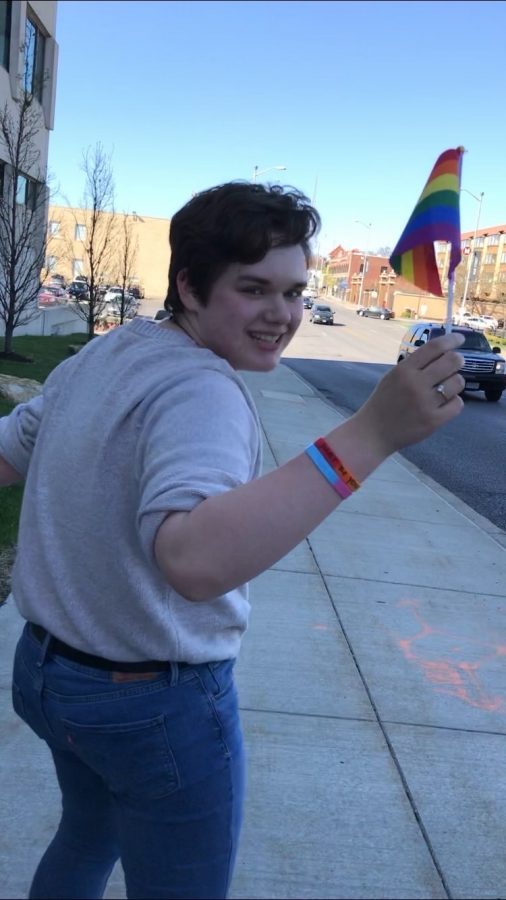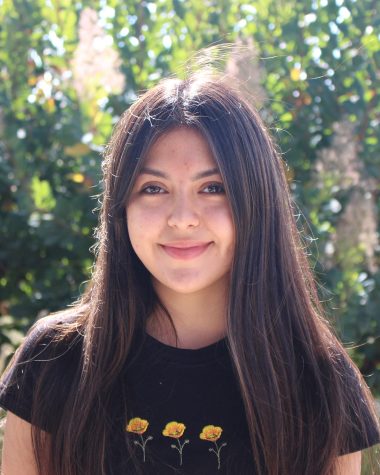DHS students get politically involved
Members of the student body find unique ways to become involved in politics
Senior Adam Kellog Leads a Pride KC march along with the GSA of DHS.
The idea of politics may sound intimidating to teens seeing as how it’s often viewed as something reserved only for adults, but that is not the case. In this day in age, there are plenty of ways for young adults to get involved in politics.
One of the most obvious ones, although it’s only available to students who are over 18 years old, is to vote. Voting is an American civic duty and should be done when it’s within their capability. While some might consider their vote to be insignificant due to the fact that hundreds of millions of people vote, every vote counts.
There have been several close elections in the history of the United States, one of which was the 2000 presidential election between George W. Bush and Al Gore which Bush ultimately won by 557 votes in the state of Florida.
“I think it’s especially important to vote in this election because it’s our future. Even if the candidates are not what you would ideally want, a vote in this election can save lives,” junior Lily Werner said.
There are also simpler ways to get involved, such as by signing petitions. Although it may seem very minimal, it can be very impactful. Over the summer, several students got involved by signing petitions.
“I signed a lot of petitions mostly for [the] Black Lives Matter movement,” senior Riley Chambers said. These petitions have proven to be effective for this movement. In 2017, after the death of Trayvon Martin, his mother started an online petition calling for the arrest of his shooter. The petition gathered over 2.2 million signatures, and the shooter was arrested shortly thereafter.
If students are looking for a more hands-on approach, becoming a poll worker is always an option as well. In order to become a poll worker in Johnson County, you must be a JOCO resident, attend and complete the training day and be available for the complete voting day. It’s a simple process that some DHS students have chosen to partake in.
“Since I can’t vote this election, I wanted to make some sort of difference, especially in an unstable election year. Many poll workers are older, so they’ve dropped out, creating a shortage this year,” senior Adam Kellog said. “There’s a short application process and a letter of referral from a teacher you’ll need. Its paid, for one 12-hour day you make $110.”
Contacting your representatives is also another option available. If you feel like your representative isn’t properly representing your interest, you can always reach out by writing them a letter, making a call, or even sending a text.



